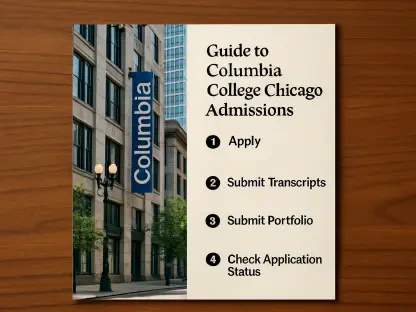In an era where the authenticity of academic credentials is increasingly under scrutiny, Kuwait has taken a bold step to protect the integrity of its education system and labor market with a groundbreaking draft law on degree equivalency. This legislation, introduced by the Ministry of Higher Education, seeks to address the persistent challenge of fraudulent qualifications that undermine institutional credibility and workforce competitiveness. By replacing outdated regulations, the new framework promises a more robust system of verification and accreditation, ensuring that only recognized degrees hold value in both public and private sectors. This move reflects a growing global concern over academic fraud and positions Kuwait as a leader in safeguarding professional standards within the region.
Enhancing Educational Integrity
Stricter Regulations for Degree Validation
The cornerstone of this new legislation lies in its stringent approach to validating academic degrees, aiming to eliminate the use of unaccredited or counterfeit qualifications in employment and career progression. Under the updated rules, individuals must submit equivalency applications prior to employment, with a one-year grace period to secure approval. Failure to obtain this within the stipulated time risks termination of employment contracts, unless the application is explicitly rejected earlier by a designated authority. This proactive measure ensures that job applicants meet necessary standards from the outset, preventing unqualified individuals from entering the workforce. Moreover, the Ministry has the authority to charge fees for verification services, aligning operational costs with the goal of maintaining high-quality oversight. This structured compliance process underscores a commitment to transparency across all sectors.
Penalties to Deter Academic Fraud
Beyond procedural requirements, the draft law introduces severe penalties to deter the misuse of fraudulent credentials, signaling a zero-tolerance stance on academic dishonesty. Individuals found guilty of using or benefiting from fake degrees face up to five years in prison and fines as high as KD 10,000, with public employees facing additional consequences such as dismissal from service. The penalty framework is graduated, with lesser violations incurring imprisonment of up to one year and fines ranging from KD 1,000 to 5,000, ensuring proportionality in enforcement. This approach not only punishes offenders but also serves as a powerful deterrent, protecting the labor market from systemic abuse. The emphasis on harsher repercussions for public sector workers highlights the importance of maintaining public trust and integrity in government roles, setting a precedent for accountability at all levels.
Building a Robust Oversight Framework
Formation of a Special Equivalency Committee
A pivotal element of the new legislation is the establishment of a specialized committee within the Ministry of Higher Education, tasked with overseeing degree evaluation and equivalency processes across the board. Chaired by the Undersecretary, this body includes representatives from various government agencies, granting it broad authority to develop accreditation policies and coordinate with international educational entities. Unlike previous regulations that mandated fixed representation, this flexible structure allows the committee to adapt to diverse needs and delegate specific tasks to Ministry departments for efficiency. Such adaptability ensures that the evaluation process remains responsive to emerging challenges in academic verification. The committee’s role in proposing eligible worker categories for recognition further tailors the system to Kuwait’s unique labor dynamics.
Balancing Enforcement with Practicality
While the law prioritizes strict enforcement, it also incorporates practical measures to accommodate existing workforce realities and ease the transition for certain groups. Exceptions are provided for individuals employed before the law’s enactment, as well as for government-sponsored faculty and specific staff categories approved by the committee. This balanced approach acknowledges the complexities of retroactive application while pushing for future compliance through mandatory checks and structured timelines. Additionally, the Ministry can delegate verification tasks to approved external authorities under strict contractual obligations, ensuring data confidentiality and maintaining quality standards. These provisions demonstrate a nuanced understanding of the challenges posed by academic fraud, offering a framework that is both rigorous and realistic in addressing the needs of a diverse labor market.
Safeguarding Future Standards
Addressing Past Regulatory Gaps
Reflecting on the implementation of this draft law, it became evident that past regulations had significant loopholes that allowed the exploitation of unverified credentials in Kuwait’s employment landscape. The replacement of the earlier suspended law tackled these deficiencies by introducing clearer guidelines for degree recognition and a more authoritative oversight mechanism. The graduated penalty system established during this reform was designed to address a spectrum of offenses, ensuring that enforcement matched the severity of violations. This comprehensive effort closed critical gaps, fostering a transparent environment where only qualified individuals could contribute to the national workforce. The focus on both preventive and punitive measures marked a decisive shift in policy that prioritized academic integrity over leniency.
Paving the Way for Long-Term Credibility
Looking ahead, the impact of this legislation offers a blueprint for sustaining educational and professional standards in Kuwait through continued vigilance and adaptation. Stakeholders are encouraged to prioritize ongoing collaboration between the Ministry of Higher Education and international bodies to refine accreditation processes. Implementing regular audits of equivalency procedures can further strengthen the system, ensuring it remains resilient against evolving forms of academic fraud. Additionally, raising public awareness about the importance of verified credentials will empower individuals to comply with these standards proactively. By fostering a culture of accountability and transparency, Kuwait can solidify its reputation as a hub of credible education and competitive labor, setting an example for other nations grappling with similar challenges in the academic sphere.









